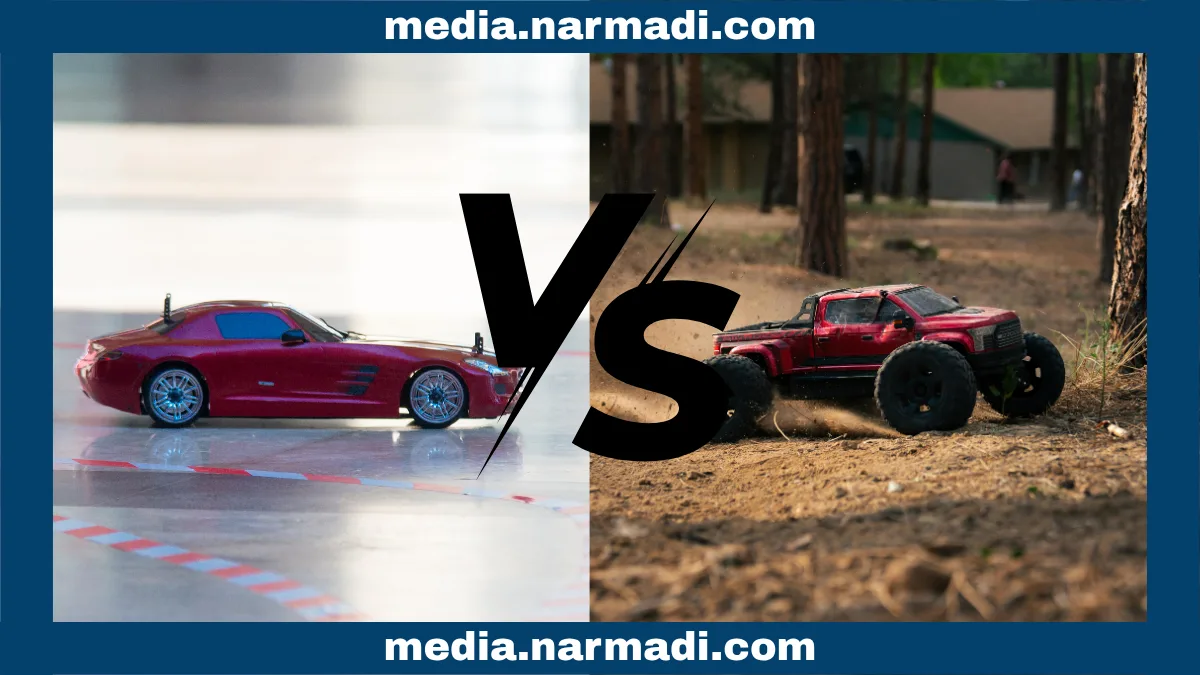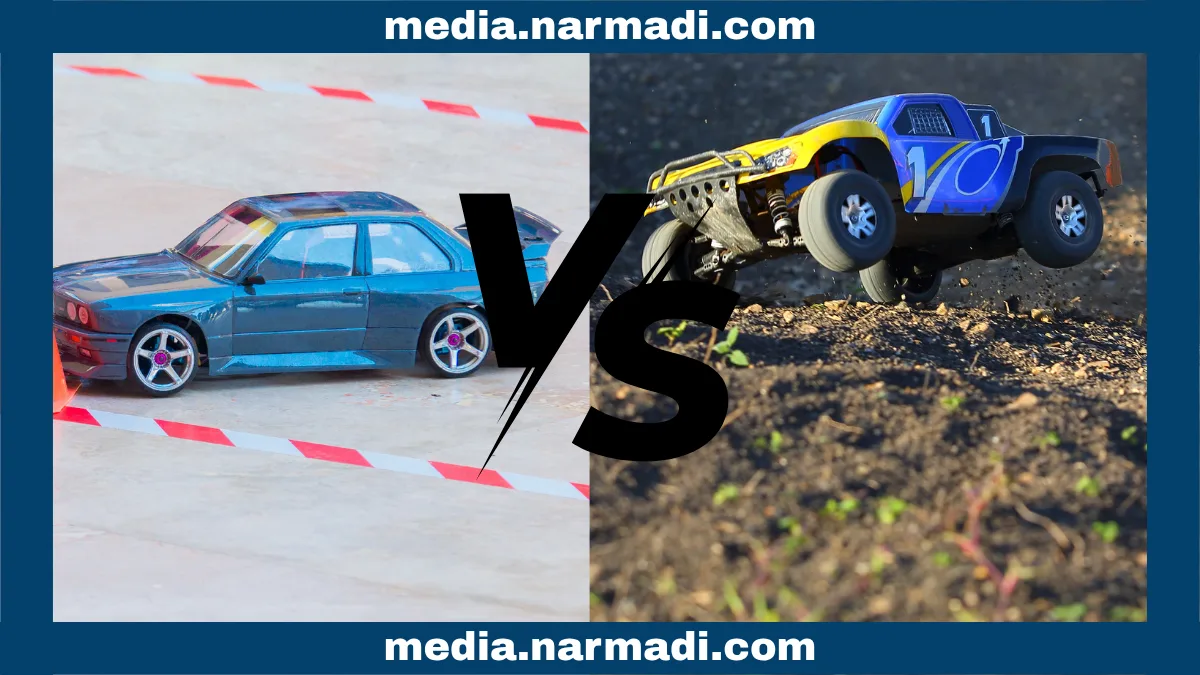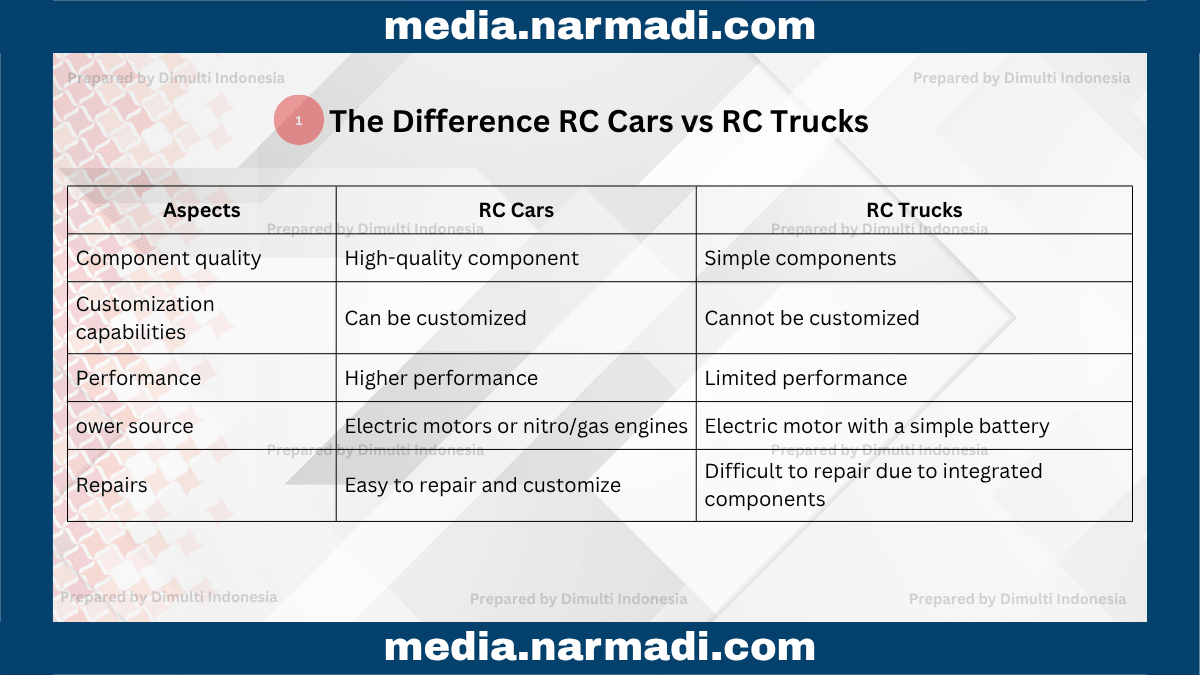RC cars and RC trucks are enhanced by wireless technology, which creates an enjoyable experience. Although both are devices that allow you to play with a radio control, they have some significant differences.
The differences between RC cars vs RC trucks include several factors, namely body design, suspension, terrain Capability, tires, speed, and examples of use.
This article will explore the key differences between RC cars vs RC trucks to create an enjoyable experience.
What is an RC car?

An RC car is a toy that is a miniature model of a vehicle. RC cars are designed primarily for speed and agility on smooth surfaces. These toys are often used in racing competitions or hobby settings that focus on precision driving.
Because they are intended for racing, these cars are designed to reduce wind resistance. They usually have a low profile, lightweight construction, and are equipped with a sleek, aerodynamic body. Types of RC cars include touring cars, drift cars, and formula-style race cars. Each type has specific characteristics tailored to different racing styles.
This type is usually divided into two categories: hobby grade and toy grade. Hobby grade RC cars typically offer better components and are intended for professionals. Many of their components can be replaced and customized to suit the user's needs.
What are RC Trucks?

RC trucks are toys designed for more complex terrain, such as dirt, gravel, mud, and rocks. To handle rough terrain, these RC trucks are equipped with powerful performance and high durability. Their design resembles full-size trucks such as monster trucks, short-course trucks, or rock crawlers.
RC trucks are designed with high ground clearance, a strong suspension system, and large tires with deep treads. Some RC models are even equipped with waterproof electronics to traverse puddles and muddy roads. RC trucks are suitable for those who are looking for performance on rough terrain or just want to enjoy the thrill of driving on rough landscapes.
Just like RC cars, RC trucks are also available in hobby-grade and toy-grade versions. Hobby-grade trucks tend to offer more power and better suspension systems because their parts can be upgraded as desired. Meanwhile, toy-grade models are usually more affordable and simpler, ideal for beginners or younger users.
The Differences of RC Cars vs RC Trucks

RC cars vs RC trucks are devices that allow you to create an enjoyable experience. Here are the differences between the RC:
Body design
RC cars: Have a lower, more aerodynamic, and sleeker body design for maneuvering on flat tracks.
RC trucks: Have a taller, larger, and sturdier body design. Often equipped with features such as cargo beds.
Suspension
RC cars: Designed with stiffer suspension because they are designed for high-speed stability.
RC trucks: Designed with softer and stronger suspension because they are intended to handle shocks on rough terrain.
Terrain Capability
RC cars: Good for use on smooth surfaces such as race tracks or paved roads.
RC trucks: Good for use on off-road terrain such as dirt, gravel, mud, and rocks.
Tires
RC cars: Have tires that are usually smoother and thinner for traction on flat surfaces.
RC trucks: Have thicker, grooved tires for better grip on uneven surfaces.
Speed
RC cars: Designed to have higher speeds on flat surfaces as they are intended for racing or drifting.
RC trucks: Designed to have lower speeds than RC cars on flat tracks, as they are not intended for racing but for overcoming obstacles.
Examples of use
RC cars: Used for racing on tracks, drifting, or driving on flat roads.
RC trucks: Used for off-roading, climbing rocks, overcoming obstacles, or rough use.
That’s the difference between RC cars vs RC trucks that you can consider when choosing according to your personal needs.
If you need a remote control for racing on tracks, drifting, or driving on flat roads, RC cars are a good choice. However, if you need remote control off-roading, limbing rocks, overcoming obstacles, or rough use, you can choose RC trucks.